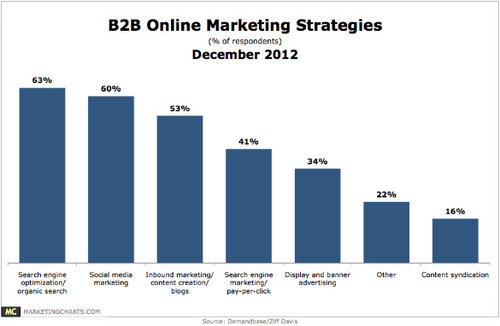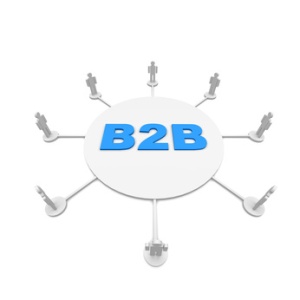 I’m currently working on developing a new campaign for my company which got me thinking about the sales value chain and how content marketing should be targeted to hit key stakeholders along this chain. This prompted me to launch a survey on how people are using social media in their personal lives versus for business. I know that I personally have completely separated Facebook from my business life and don’t really use it for anything other than to connect with friends, i.e. I don’t go around liking my favorite brands. I use LinkedIn, Twitter, WordPress, and Pinterest pretty regularly for business as I am constantly doing market research and trying to connect with others in my industry. I use Reddit, Scoop.it, YouTube, and others for both business and pleasure.
I’m currently working on developing a new campaign for my company which got me thinking about the sales value chain and how content marketing should be targeted to hit key stakeholders along this chain. This prompted me to launch a survey on how people are using social media in their personal lives versus for business. I know that I personally have completely separated Facebook from my business life and don’t really use it for anything other than to connect with friends, i.e. I don’t go around liking my favorite brands. I use LinkedIn, Twitter, WordPress, and Pinterest pretty regularly for business as I am constantly doing market research and trying to connect with others in my industry. I use Reddit, Scoop.it, YouTube, and others for both business and pleasure.
The question that I started thinking about was, well, how do I use social media to educate myself on products both personally and professionally? A great example is that my company is currently implementing a new task management program. My process for this was to check out the website, watch a video on YouTube demonstrating the software, read some reviews, and visited a forum to see what people were saying about their experience.
What process would an accounting manager go through to analyze the same product? Are they more likely to weight product reviews higher than reviews posted by actual users on a forum? Would they be more interested in a white paper on how the task program fit in the accounting market? These are great questions that I would like to find an answer to; how, when, and what type of content are key stakeholders using to make decisions?
If you have any great resources you would like to share I would love to hear about them! Also feel free to take my short 9 question survey on Personal and Business Use of Social Media.








